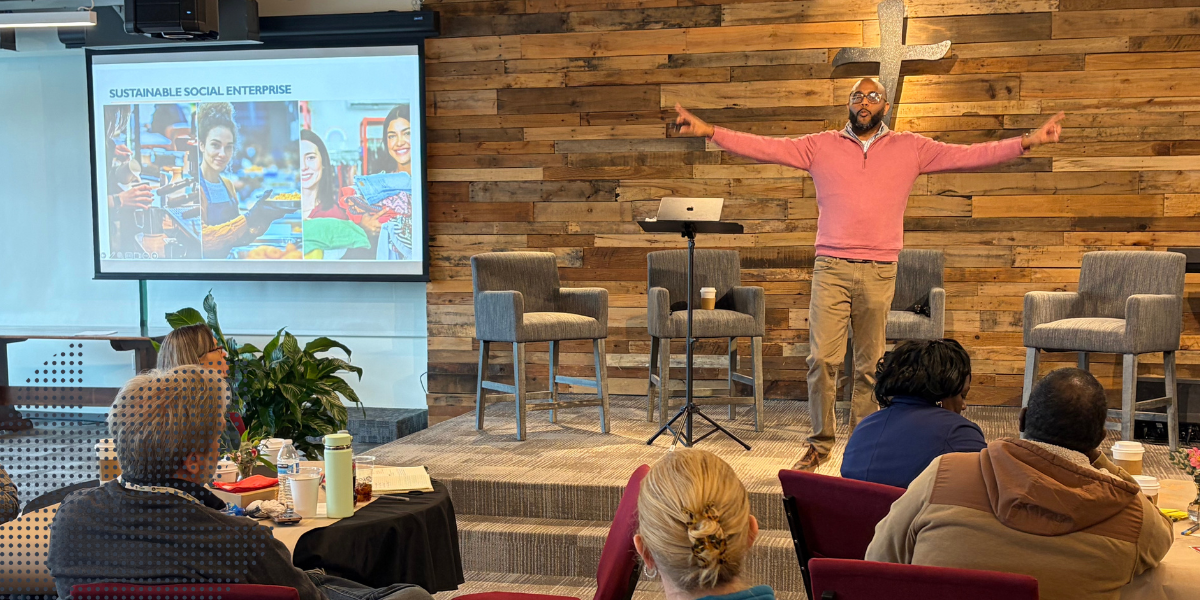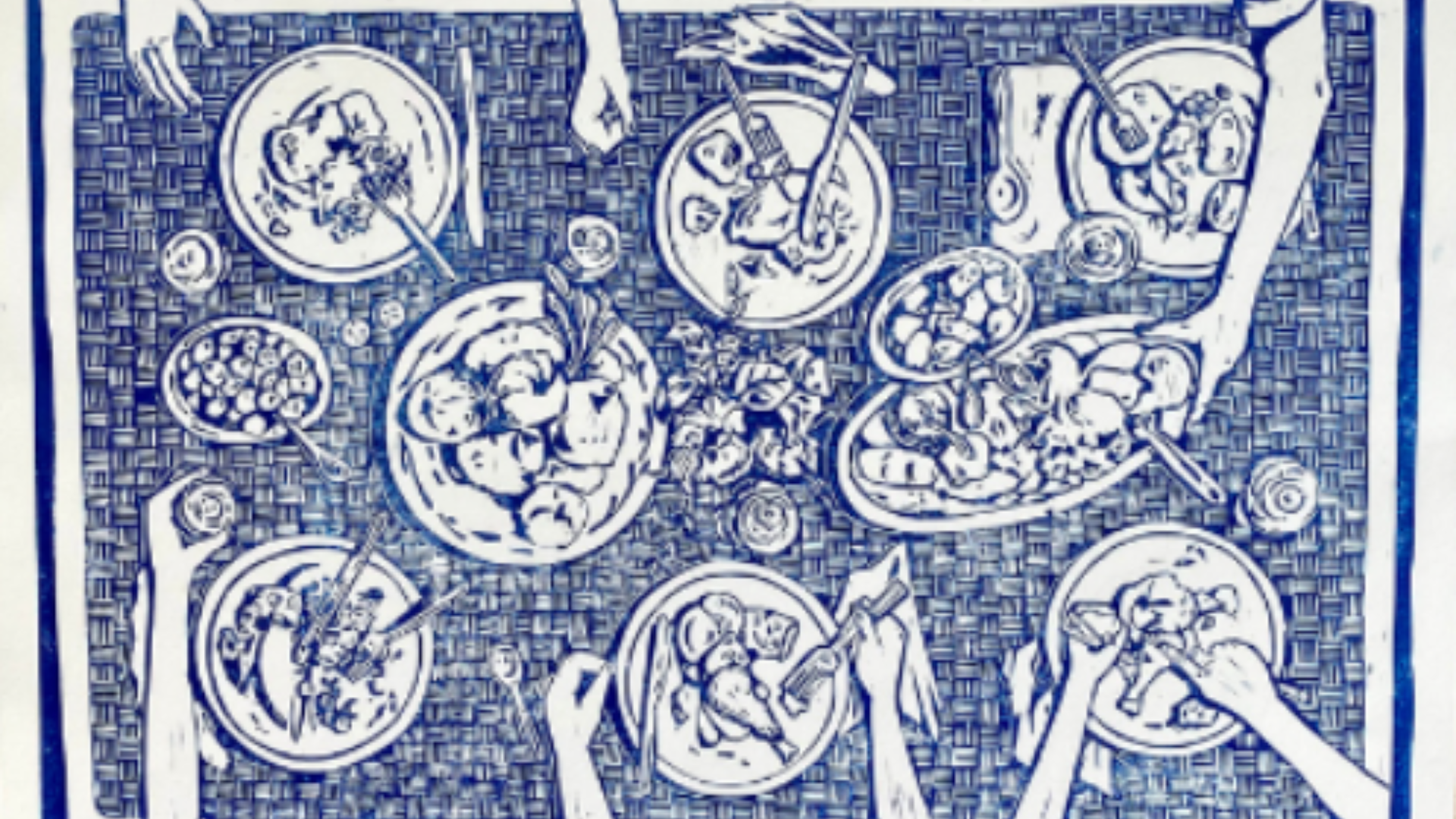Why Dinner Church Is a Joy in Hispanic and Latino Communities
Author
Eliseo Mejia
Date
November 11, 2021
It smells so delicious here!
Hmmm.
What did you prepare that smells so rich?
“Ropa vieja,” rice with gandules, a barbecue, empanadas, farofa, mole poblano?
“You cooked your favorite dish. Did you throw garlic on this yucca?”
“Let’s see, let me taste it.”
I took a few steps, closed my eyes, and you don’t have to imagine anything. Just sitting at the table took me to the most intimate part of the home, to a beautiful relationship, and it was like opening the trunk of my memories.
Standing before this threshold of history, I remember my mother making us corn tortillas fresh out of the “comal.” She will put melting cheese to the end, licking your fingers. And the fascinating thing was that the boys who came to play ball with us enjoyed them too.
At the age of 9, Doña Alicia, owner of the corner store in the “El Paraíso” neighborhood, gave us “Semitas,” a thick, tasty bread with melted sugar inside.
Mrs. Alice would take the coin and lean over the counter with charming eyes, a tender smile, and with a pleading sound in her voice, she would say: “here is your coin back, and I will give you your change.” She handed me my “emergency coin” and another one “just in case your brother would want ‘semita’ also.” She would say.
As she pronounced those angelic words, to this day and with teary eyes, I think she was an absolute angel with feet of clay!
It is no secret that food, family, and community constitute anywhere, the backbone of Hispanic and Latino cultures; all three are gestures of love.
Abraham, Food and Family
Food is then the cornerstone and the epicenter of the family, the attention to gatherings and anecdotes of the grandparents, and the aroma and flavor, expressions of our culture, providing generational ties.
Perhaps your great-grandmother used to make a stew in this way. And so, the recipes crossed seas and borders orally and manually. Even this culinary family offered spaces with a sense of belonging, purpose, and direction in life.
Out of our hearts then emerges a principle that all shared food is a blessed table good.
Let’s see how this principle of why the celebration of dinner church an extravagant joy is. Come, sit at the table, grab a cup of coffee and a couple of cookies!
An elderly couple wanted to have a child, one of the promises! But nothing had happened. Sarah had passed the age to give birth, and even though they were octogenarians, they were about to discover God’s blessing around a meal (Genesis 18:1-15; 21:1-7).
And so, it happened. Abraham, her husband, runs to receive the guests (heavenly visitors), hurries to prepare an exquisite meal; they ate and enjoyed intimate communion.
Right there, Sara was listening behind the curtains of the tent. She heard the message: “God will visit you and give you a son.” She laughed. And it was no wonder. At her age, pregnant? But it happened indeed (Genesis 21:1-7). She conceived and gave birth to a beautiful son, Isaac.
I don’t know what your reaction would have been. But when God gives a promise, He never takes long to fulfill it because there is nothing impossible for Him. In this story, we perceive that happiness in that perfect union between table and blessing.
Both form the heart of gratitude in ancient cultures like Israel.
Table and blessing are two keywords in the Old Testament that show the importance of the table, and then the blessing when eating at it: Shulhan (Table) y Shalaj (send—blessing).
שולחן Shuljan = SH – L – J – N = Table
שליח Shalaj = SH – L – J = Send—blessing
That environment was and still is profound hospitality. It opens doors to create authentic communities, saying to each person that their lives are as significant to us as to God.
“Something holy happens around a table (‘Shulhan’) that will never happen in a sanctuary. In a church auditorium, you see the backs of heads. Around the table (‘Shulhan’), you see the expressions on faces. In the auditorium, one person speaks; around the table (‘Shulhan’), everyone has a voice. Church services are on the clock. Around the table (‘Shulhan’), there is time to talk.” (Max Lucado, Outlive Your Life )
In Psalm 23, the most favored psalm of generations, the same thing happens. God prepares a table before you in the presence of your enemies, anoints your head with oil, and fills your cup to the point of overflowing.
He is your host, extending you an invitation to His table of abundance and joy. Naturally, here he blesses you (Shalaj) with goodness (Hemet), and mercy (Hesed) will follow you every day of our lives.
Where Church is Born
The silence of four centuries erupts in excitement, and Jesus Christ inaugurates a new era with intimate and profound implications. Now, God is present! He converses, laughs, cries, and invites us all to celebrate and remember his life, teachings, and miracles around His table (Luke 15:2; 22:15-20).
There, between surprises and scares, the church is born around a table!
Every moment of being together was a good time to break bread, eat together with unwavering joy. Love anchored so profound that they shared with everyone according to their needs, so much so that no one had a shortage (Acts 2:42-47).
Immediately, the apostle Paul encourages us to wait for everyone to come to the table and celebrate the meal with deep gratitude. And why not if the blessing of this meal extends all the ways towards the heavens, anticipating the biggest banquet celebration of the lamb’s wedding.
God understands the language of fellowship, joy, and festivity that food, family, and community offer. For this reason, he invites us to experience his delight amid our Hispanic-Latino communities.
The last time I saw Mrs. Alicia, it was in my dreams in another city.
I could feel his hugs, the kiss on my cheek, and saying to me with a smile, “Eliseo, now it’s your turn, serve yourself like a piece of bread for hungry people to eat, and give as generously as I have given you.”
I never saw it again, but somewhere in my wallet, I have a hidden coin, in my mind a delicious “Semita,” and in my heart the genuine desire to invite you to the table.
The food is served and warm! Come here! And celebrate with me.
Come here! Sit at the table, Jesus Christ is with you, and I invite you to celebrate with me because shared food is a blessed table good.

About the Author
Eliseo Mejia
Rev. Dr. Eliseo A. Mejia is a pastor, missiologist, and church-planting leader with nearly three decades of experience launching new faith communities across cultures and countries. An ordained elder in the Kentucky Annual Conference, he currently serves as senior pastor of Paris First UMC and formerly led Mosaic UMC, a vibrant multicultural congregation in Louisville. He has also served as Associate Director of Hispanic, multiethnic, and international church planting for the Kentucky Conference. Passionate about equipping leaders and reaching new people for Christ, Dr. Mejia now serves as Director of Expresiones Divinas with Fresh Expressions.














